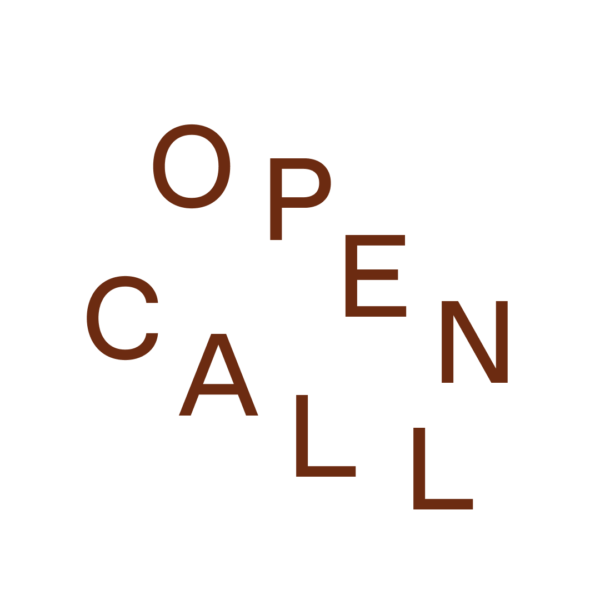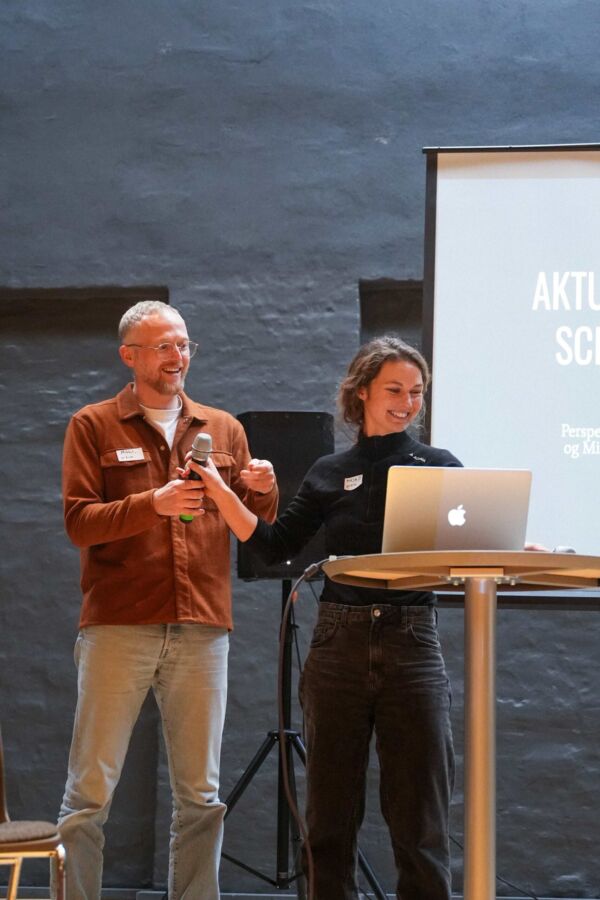
The Strategy Lab for Performing Arts is offered by UP as a one-week paid development programme for performing arts groups and companies. Here you get the opportunity to work intensively on developing a strategic direction.
You will be given time to reflect on conscious choices and rejections that can support your artistic and organisational visions.
The programme is the first and only one of its kind – a unique opportunity to boost your strategy.
How do you turn a great idea into reality? What does it take to realise a change in your performing arts practice or a new business model? How can you work more long-term and less project-based?
The Strategy Lab for Performing Arts is paid – consider it a prioritised work process for your group or company.
The Lab takes place at Thoravej 29 in collaboration with the Bikuben Foundation.

The Performing Arts Strategy Lab is about moving from idea to strategy. Some of the questions you will be working with may include:
- What opportunities and challenges in our environment should we take into account?
- How do we build strong partnerships and networks that support our strategic direction?
- How do we clearly communicate our vision and values to both audiences and partners?
- What is our plan for ensuring a financial foundation that supports our strategy?
What does a week in the Strategy Lab look like?
The process begins with an introductory day before the Lab week, where you will receive a basic introduction to strategy development, models, and tools that are useful for identifying your focus and needs, so that you are equipped to work with the strategy process yourself during your Lab week.
You will then be assigned a strategy facilitator who can support you in setting a direction for your ambitions and mapping out the next steps in your strategy. The strategy facilitator will visit you twice during the week for a limited period of time.
In addition, a permanent contact person from UP will be assigned to you as your Lab host throughout the process.
The Performing Arts Strategy Lab culminates in a workshop for your strategy facilitator and UP host, where you present the week's considerations and key points.
What does the program include?
- A mandatory introductory day for all selected groups with a strategy coach who will introduce methods for strategy development
- An online toolbox for strategy and organisational development, where UP will upload materials that you can use during Lab week
- A strategy facilitator
- A Lab host from UP, who will be present at Thoravej
- A worksharing at the Lab on the last day, where you will present your thoughts and key points from the week
- A mandatory networking and knowledge-sharing meeting for all selected groups after the overall Performing Arts Strategy Lab at the end of the year
- A digital evaluation via questionnaire
Practical information:
- The course lasts one working week (Monday to Friday). In your application, you can select your preferred week(s).
- All courses take place at Thoravej 29 in Copenhagen. To ensure knowledge sharing, it is mandatory that the Lab work is carried out in the assigned Studio during daytime hours.
- The program is paid for up to four people in one group. The salary is for a minimum of five working days plus one extra working day for introduction and knowledge sharing participation. We offer salary, pension, and vacation pay for each participant.
- Transportation and accommodation are covered for participants who have more than 1.5 hours of public transportation within Denmark to Thoravej 29.
- Free lunch is provided at Thoravej.
- Please note that we will ask you to share key points from your process and what you have developed during your Lab program in a digital format.
You can read more about the venue here.
The Performing Arts Strategy Lab will take place from October 2025 to June 2026 during the following weeks:
Weeks / Dates


WunschMachine
WunschMachine skaber stedsspecifik, interaktiv og borgerinddragende scenekunst for og med børn, voksne og unge. Igennem forløbet vil deres fokus være på at sigte langt både hvad angår samarbejder, organiseringsstruktur og at skærpe deres profil udadtil. Som strategifacilitator for forløbet er Andreas Groth fra Landjord.
Foto: Sune Hede

Tiny Dancer
Tiny Dancer works with an artistic vision of developing participatory performances that engage children and young people in the creative process through pedagogy, kinesthetic empathy, and contemporary dance. Throughout the process, Tiny Dancer will work on its strategy for the association's operations and structure, as well as focusing on the development and dissemination of dance art for the youngest nationally and internationally. Andreas Groth from Landjord is the strategy facilitator for the process.

STUDIO By Dorotea Saykaly & Emil Dam Seidel
STUDIO works across disciplines, using choreography and material design to create immersive and sculptural works that shake audiences out of their heads and into their bodies. They will work on establishing a sustainable organizational and financing structure that can facilitate the creation and distribution of more artistic projects. Karen Toftegaard from Wildtopia is the strategy facilitator for the process.
Photo: Henrik Stenberg

toaspern|moeller
aspern|moeller is an international and interdisciplinary company that highlights various relevant topics by combining text, voices, and electronic music with movement and dance. Throughout the process, they aim to rethink strategy, expand networks, and increase visibility in order to navigate the Danish cultural landscape and establish a long-term presence in the industry. Karen Toftegaard from Wildtopia is the strategy facilitator for the process.
Photo: Philip Jørgensen

KOMMA Performance Productions
KOMMA Performance Productions is a dynamic association that works with performing arts production in the fields of dance, choreography, and performance. During the week, they will work on how to develop effective decision-making structures in an art-driven organisation with a flat hierarchy, as well as examine how artistic work can be balanced with the demands of administration and organisational maintenance. Dorthe Hove Olesen from Stages will be the strategy facilitator for the course.

hello!earth
Through interdisciplinary collaborations and artistic experiments, hello!earth creates participatory works that focus on relationships between people and creating the world together rather than simply consuming it. They will work on how to implement the artistic focus on sustainability at the business level of their organisation. Frederik Larsen from In Futurum is the strategy facilitator for the process.

The Post-Cultural Body
The Post-Cultural Body has developed an online platform for digital performance with theatrebuilding.com, which hosts artistic conversation, research, and theatre production across national borders. The process will give them time to work on their vision for a decentralized management structure and to map out what collective ownership of works and decision-making processes might look like. Tali Mørch from Os & Data is the strategy facilitator for the process.
Photo: Louise Herrsche Serup

prfrm
prfrm provides production and distribution assistance to artists, groups, and institutions. In addition, they work actively to ensure good working conditions in the independent field and to bring niche performing arts to audiences throughout Denmark. They will use the program to create a sustainable model for their work, with a particular focus on ensuring that there are enough producers in the independent field. Andreas Groth from Landjord is the strategy facilitator for the program.
Photo: Elias Rasch
FAQ
Yes, but you must be a minimum of 2 people associated with the Performing Arts Strategy Lab. If you are a solo artist or a one-person company, we recommend that you apply with a sparring partner who knows you well, such as a producer you often work with.
At the end of the programme, we ask you to make a presentation of the week's work of about 30 minutes in total. You will receive a PowerPoint template that you can use to answer a series of questions related to the Lab and the learning your work has generated. You can also choose what you want to share - drawings, materials or anything else you find meaningful. Your worksharing should be seen as an opportunity to capture the results and conclusions of the week's work for your own future use. Your strategy facilitator and UP host will participate and provide feedback.
The space at your disposal is called Studio and has facilities for organisational development and development workshops. Thoravej 29 is a new community in a completely transformed building in Copenhagen NV, which opened recently. There's a café, and other residents include Art Hub Copenhagen and a wide range of change-making organisations.